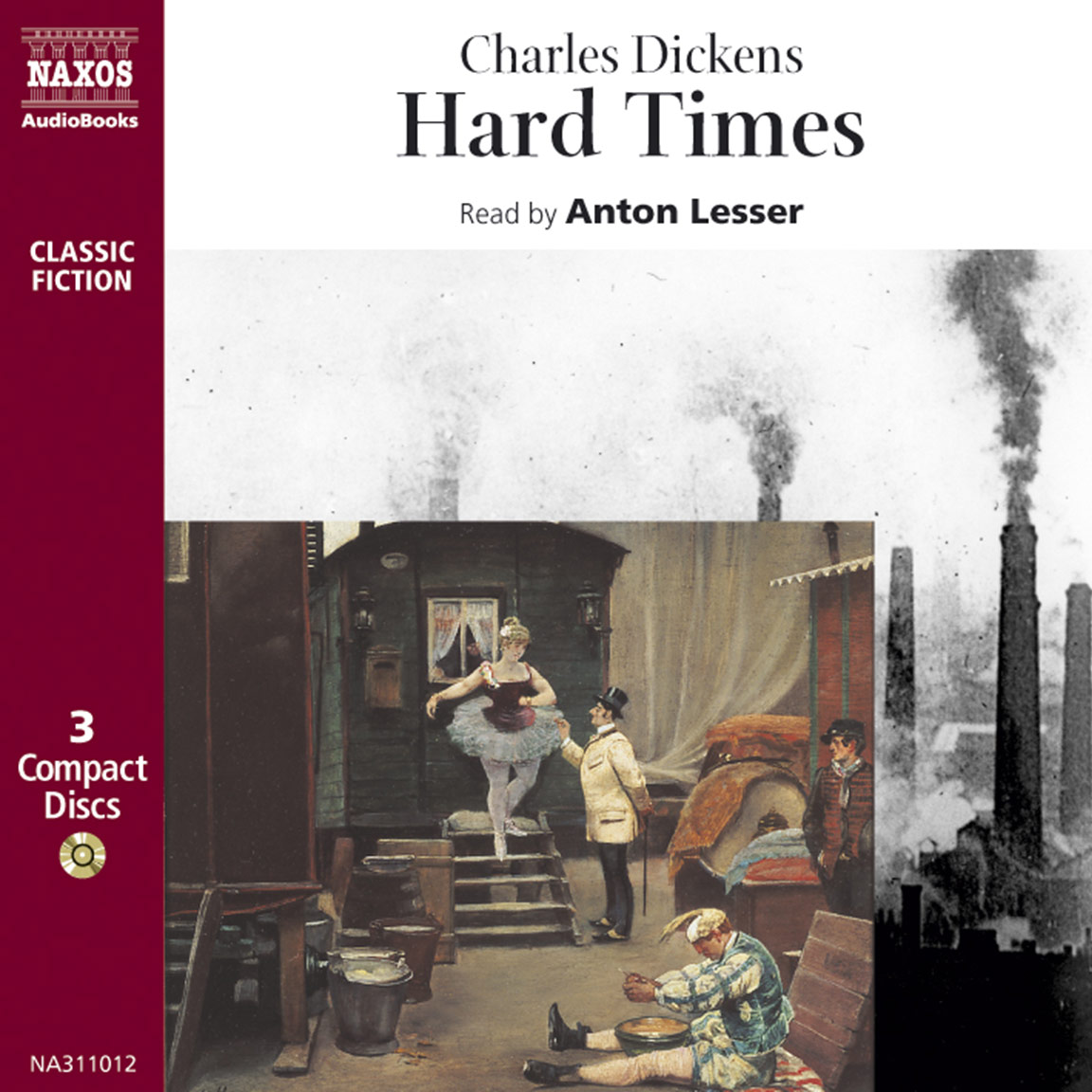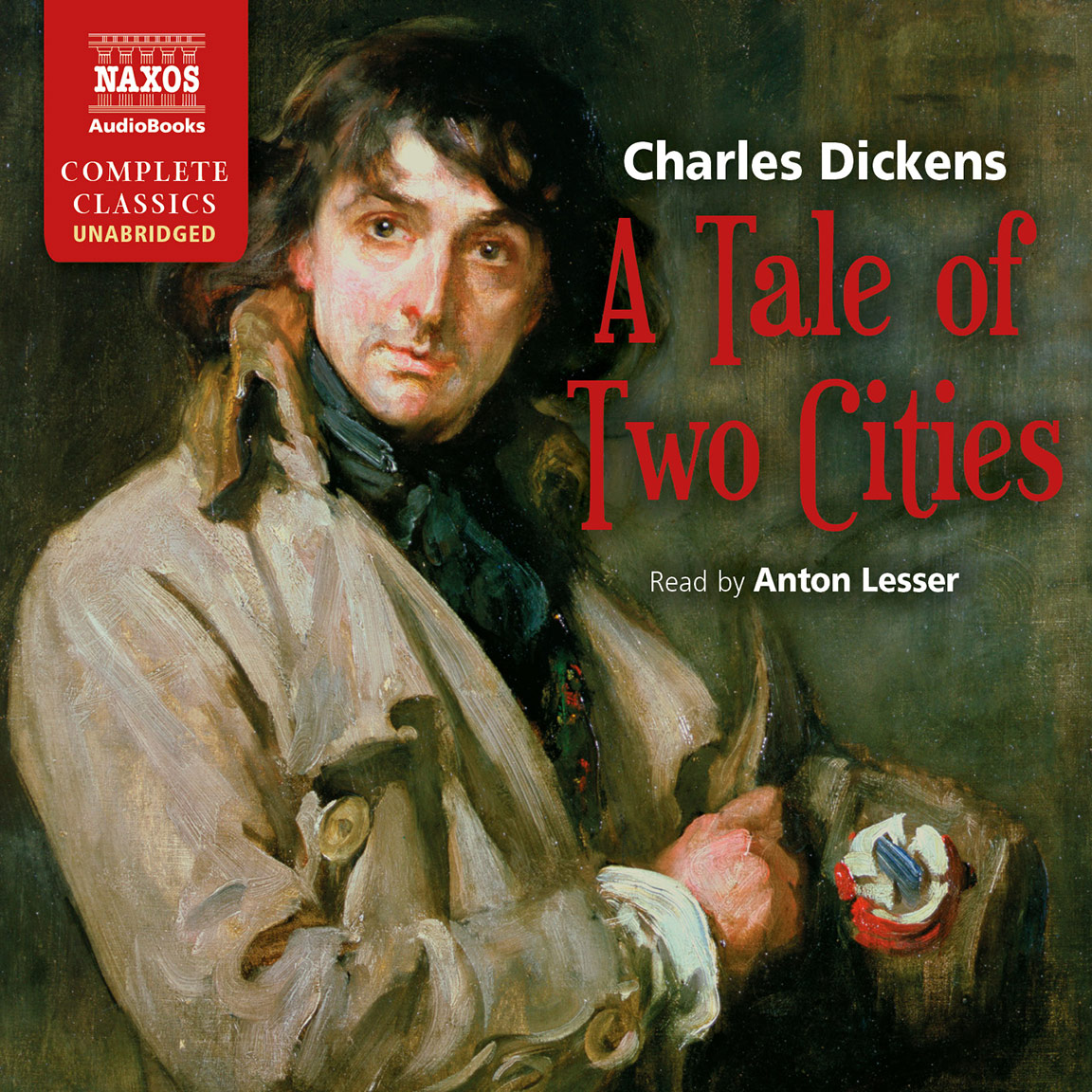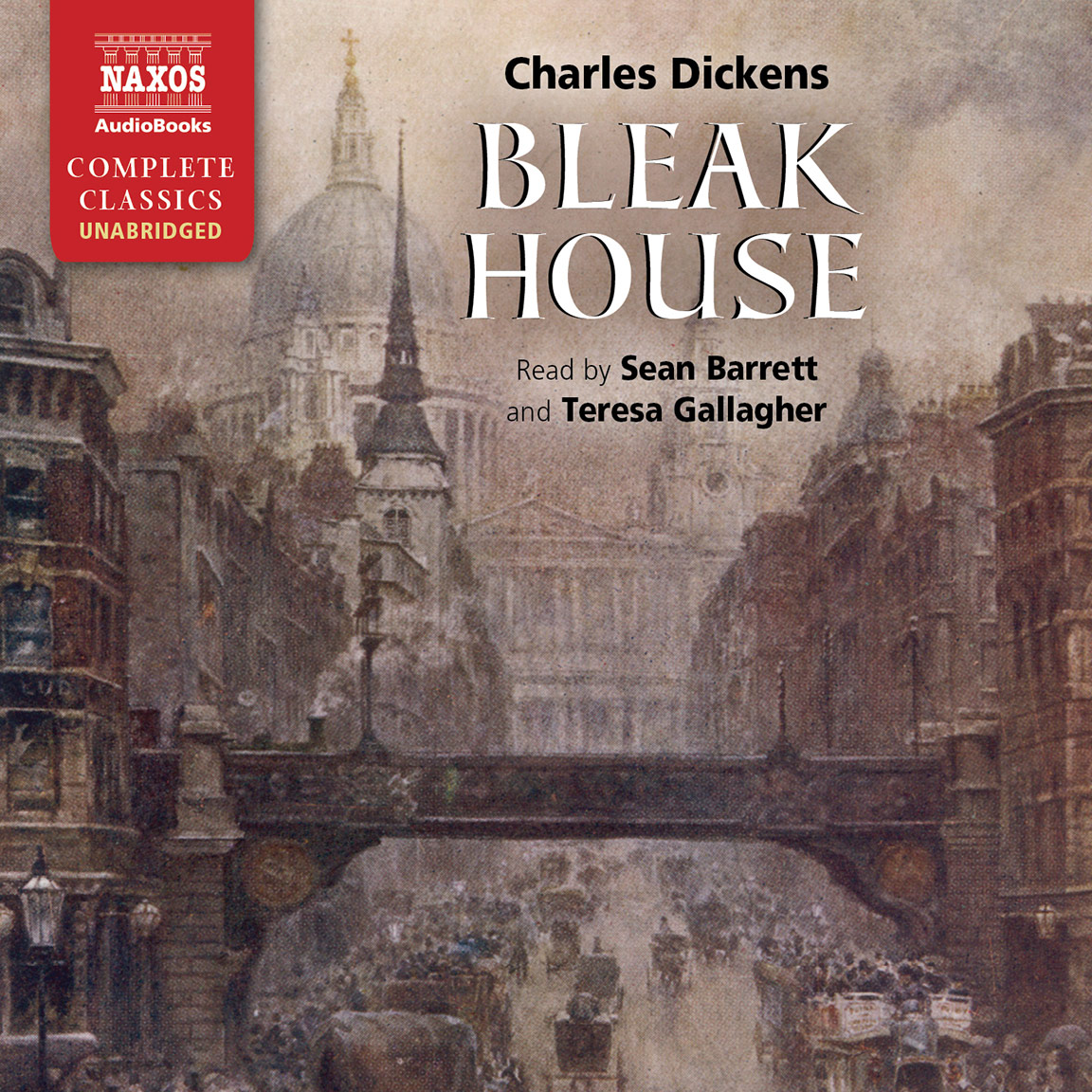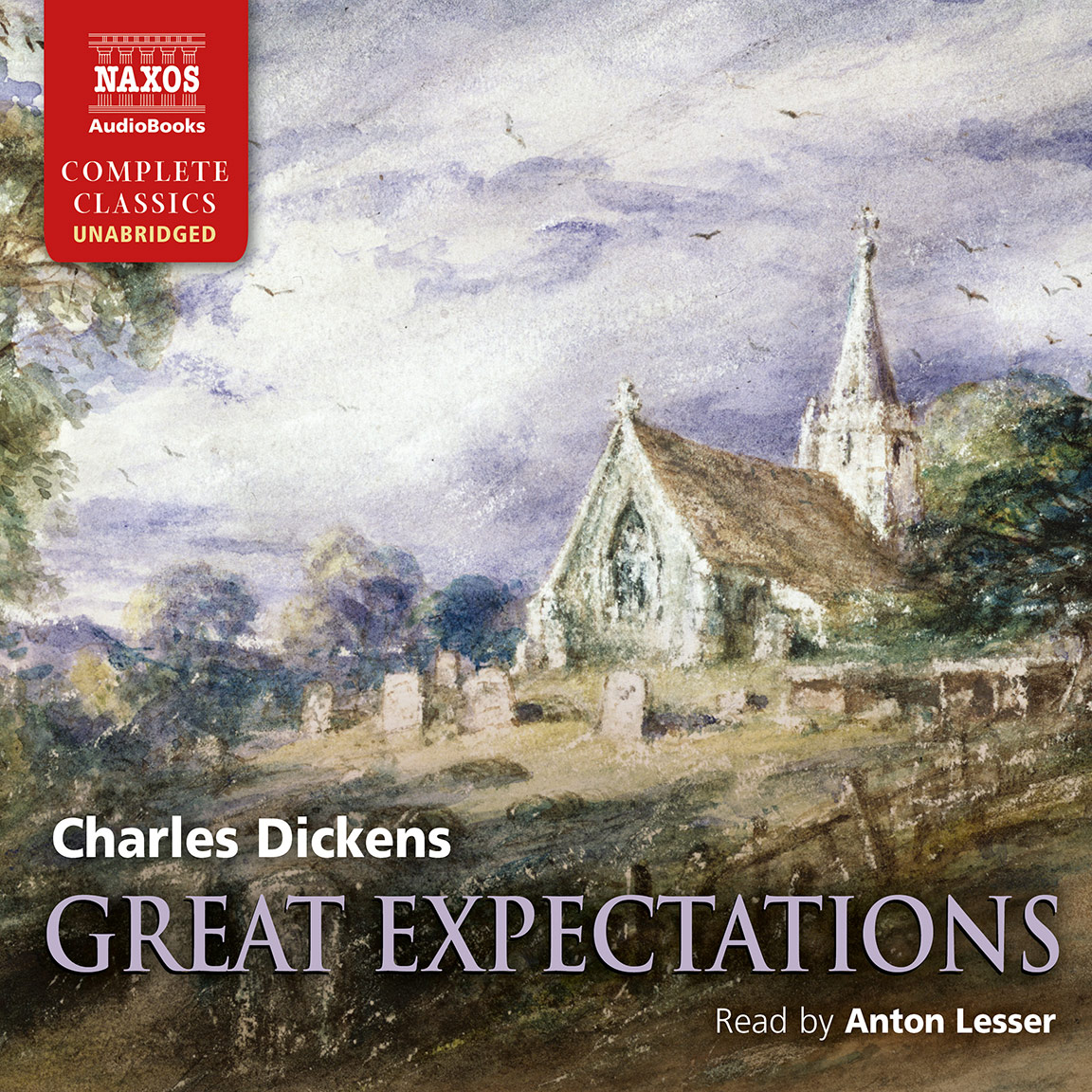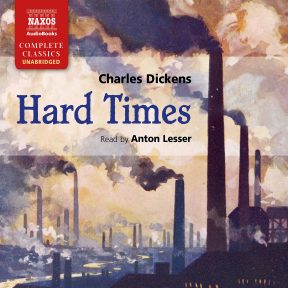
Audio Sample
Charles Dickens
Hard Times
Read by Anton Lesser
unabridged
Hard Times is Dickens’s most political novel. Set in the industrial north of England, in Coketown, he examines the lives of working people, who are taught by the capitalists Gradgrind and Bounderby to think only of the facts of life and not to indulge in imagination. Gradgrind’s own children have been so educated and as a result are dysfunctional and disconnected from their feelings. Only the travelling circus company of Sleary seems to offer any hope of humanity in Coketown. Hard Times is a deeply moving story written in anger to strike a blow for the victims of the dehumanising processes of industry.
-
Running Time: 10 h 42 m
More product details
Digital ISBN: 978-1-84379-444-8 Cat. no.: NA0023 Download size: 312 MB BISAC: FIC004000 Released: November 2011 -
Listen to this title at Audible.com↗Buy on CD at Downpour.com↗Listen to this title at the Naxos Spoken Word Library↗
Due to copyright, this title is not currently available in your region.
You May Also Enjoy
Reviews
Dickens’s fable about the dark side of utilitarianism is set in smoke-blackened Coketown. Schoolteacher Gradgrind demanded ’Facts, Facts, Facts’ from his pupils, thus practising the harsh principles by which he raised – and ruined – his own children, and which he would ultimately reject. The death of the noble-hearted worker, Stephen Blackpool, symbolises the cruel force of the factory system. Goodness and tenderness are found in the circus people, outside the realm of industry and politics. The brilliant Anton Lesser brings out all this harsh novel’s humanity.
Rachel Redford, the Observer
…in his reading of Hard Times, Anton Lesser finds the perfect voice for every inhabitant of Coketown, from the major players – ’the inflexible, dry and dictatorial’ schoolmaster Gradgrind; circus man Mr Sleary, who lisps away ’like the efforts of a broken old pair of bellows’ – right down to the last subdued schoolgirl. It’s a masterclass and makes for lively listening.
Bella Todd, Time Out
Anton Lesser finds the emotive force behind Dickens’s bleak social commentary, Hard Times, and gives it a unique reading. Dickens’s stock characters are fleshed out by Lesser’s quavering voice and given outward emotions, making these Victorian-era personas more accessible to contemporary listeners. Atypical for a Dickens story, Hard Times lacks any comic relief and reads like a case study of the industrial and utilitarian culture and how the inhabitants of a town built around those ideals are beaten down by it. By reading with a voice more suited to a period romance, Lesser places the emphasis on the feelings of the characters, effectively softening the edges of Hard Times.
F.T., AudioFile
Hard Times is Dickens’s most political novel. Taking place in the industrial burg of Coketown, the drama among the characters illustrates the author’s view of the dehumanizing effects of industrialization and utilitarianism on the lives of all involved and is essentially a ‘moral fable’ illustrating the principle that one reaps what one sows.
VERDICT: Anton Lesser, a classical actor and an award-winning audiobook reader, gives a spirited reading, bringing out the character of each persona – the dictatorial Gradgrind, the pompous Bounderby, and the meek Sissy – with skill and verve. An entertaining and captivating listening experience; all libraries should consider.
Michael Rogers, Library Journal
Fans of Naxos’ acclaimed recordings will recognize Lesser’s distinctive British voice in his exceptional reading of Dickens’s classic. What sets the audio apart is Lesser’s skill in establishing the novel’s tone and characters, both key elements in the impact of the story. The setting is Coketown, an English industrial town where pollution fills the air with grime, and the working-class inhabitants with despair. From the opening passages, Lesser sets the stage for conflict in his portrayal of capitalist Gradgrind in arrogant and plummy tones. His reading captures the broadly drawn characters, from greasy, money-grabbing Bounderby and gentle agitator Stephen Blackpool, who seeks a better life, to disdained Sissy, who brings a warming presence to smoggy Coketown. Lesser savors the descriptive passages, darkening his tones to
reflect the dirty, industrialized north region and painting a dire picture of dying humanity. He employs both humor and drama into briskly rendered conversations in north country accents, affording listeners an intimate glimpse of the players and their actions. Lesser’s masterful depiction of colorful prose enlivens the author’s incisive social commentary and heartwarming melodrama. A wonderful introduction to the pleasures of Victorian novels and Dickens’ powerful story.
Joyce Saricks, Booklist
Booklet Notes
The idea laid hold of me by the throat in a very violent manner – Dickens
Dickens had no intention of writing another novel in 1854. Exhausted after completing Bleak House in August 1853, he had intended to have a holiday from the pressures of writing, but an appeal from his publishers, Bradbury and Evans, changed his plans. In collaboration with them, Dickens had produced a weekly magazine called Household Words, for which he had briefly edited and contributed articles; however, in 1854 it was having financial difficulties. The publishers asked Dickens if he would reverse the falling sales by contributing a new novel in weekly parts. Despite his exhaustion Dickens agreed and the result was Hard Times.
By the mid 19th century, England was in the grip of the Industrial Revolution and was the world’s leading manufacturer. Factories sprang up all over the Midlands and the northern counties, and the mass production of goods meant long hours of intense labour and low wages for the work-force. Industry was beginning to dominate working people’s lives, and the consequent reduction in the quality of life for these workers led to illness, disease and desperation. Sensitive as always to the mood of his times, Dickens chose industry and its effects as the theme for his novel.
Dickens is firmly
on his soap-box
in Hard Times,
didactic at the
expense, sometimes,
of his usual
writing-style
The Industrial Revolution introduced a new system of values, in which individual worth and self-esteem were measured purely in monetary terms. Dickens viewed this development with alarm and wanted to sound a warning. He had touched on the subject before in The Old Curiosity Shop, when Little Nell finds herself in the nightmare world of furnaces, smoke and fire in Birmingham. But in Hard Times Dickens creates an environment whose inhabitants, both masters and men, are not able to pass through, as Little Nell did in Birmingham, but are prisoners of their industry, and moreover are serving life sentences.
Dickens’s description of the fictitious northern town, Coketown, where the novel is set, has all the atmosphere of a grainy black-and-white photograph from the era. Indeed smoky black is the dismal colour in the description:
It was a town of red brick… if smoke and ashes had allowed it…it was a town of unnatural red-black… it was a town of machinery and tall chimneys out of which interminable serpents of smoke trailed themselves… it had a black canal in it…
The workers in Hard Times blend into this industrial landscape and even the central working-class character, Stephen Blackpool, is not marked out by any individual characteristics. He serves Dickens’s theme, and is portrayed as a victim of a ruthless system. Some critics think that Dickens overdid the tragic aspects of Blackpool’s life, in his emphasising of the downward spiral, the utter ‘muddle’ as Blackpool sees it, of ordinary people’s lives crushed by a lack of human feeling.
But considering Dickens set out to show the world the appalling conditions the factory system bred, his lack of descriptive detail is strange. There is, for instance, no detailed description of work in the factories or of a hard working day; his examination of industrial conditions falls victim to his bigger theme of utilitarianism.
Utilitarianism (or more simply ‘usefulness’) was a theory developed by the philosopher John Stuart Mill, which advocated that taste should be dictated by rules and acknowledged principles, rather than innate or instinctive feeling. In short, taste has no value if it is not useful. This was the starting point for the conflict in Hard Times: facts versus imagination (or fancy, as Dickens termed it). For Dickens, the dull cruel world would have been unbearable without imagination, which was the very source of his creative writing. He despised the moral platitudes that were being incorporated into children’s stories in the 1850s, distorting the romance of traditional tales. ‘Fairy tales should be respected,’ he wrote. The absence of any stimulus to the imagination of the inhabitants of Coketown, who are at the mercy of utilitarian educators bent on teaching them the facts of life, with no allowance for indulging their fancies, inspired Dickens to turn away from creating a social document and to construct Hard Times as a fable in itself. Its simplicity of style resembles his other fables, the Christmas books. In Hard Times, Dickens presents a nightmare vision of a future society where men and women are treated no differently from machines.
The two guardians of utilitarianism in Coketown are Mr Bounderby and Mr Gradgrind. Bounderby is a monster of comic cruelty and savagery, a self-made man who despises anyone who has not suffered as he has. He is a prig and a bully whose self-delusion is the source of much humour. He represents the new Victorian value of power achieved by wealth and industry, rather than by blood or class. His cruel treatment of Mrs Sparsit, an upper-middle-class lady who has fallen on hard times, epitomises this change of attitude.
Bounderby views any demands from his workers as a desire to dine ‘on turtle soup and venison with golden spoons’, at his expense. He is callous in his response to Blackpool’s troubles; he rose from nothing and made something of himself, so why couldn’t Blackpool? But Bounderby, the enemy of fancy, is ironically the book’s greatest exponent of it, for his whole life turns out to be a sham, presented as truth.
Gradgrind, though firmly the symbol of utility at the start of the book, travels the furthest journey in the story, finally realising that it is his false beliefs that have ruined his son and daughter, and that he must recreate himself as a loving, caring father. Gradgrind, like Dombey in Dombey and Son, is allowed to amend his wrongs. His children, Louisa and Tom, bombarded all their lives with nothing but facts, are dysfunctional and disconnected and become victims of their own ignorance. Tom thieves, whilst Louisa is brought to the edge of committing adultery.
News of a strike by workers in Preston early in 1854 offered Dickens a basis of reality for his novel, and he set out for Preston convinced that the workers were being led astray by the strike organisers. Dickens was no socialist and mistrusted the early Trade Union movement, known as ‘combinations’, which in his eyes, like the utilitarian educators, stopped the workers thinking for themselves. It would have been unnatural for Dickens, whose own sense of individuality was so strong, to accept the idea of a collective organisation that professed to think with one mind. It was anathema to him.
Dickens does not offer trade unions as an answer to social problems in an industrial town. There is no hint of early socialism in Slackbridge, the union leader. He is a bully, out to intimidate the work-force and increase his power status, working for self-interest and not the general good, just like the capitalist Bounderby.
So if Dickens did not see trade unions as the answer, where did it lie? He sees the answer in the circus: a tinsel world perhaps, but one that valued imagination; and, for Dickens, imagination led to sympathy. The circus-folk instinctively share and share alike as they face the hardship of life on the road. ‘Sleary’s Horse Riding’, a troop of itinerant show-people led by the irrepressibly optimistic Mr Sleary, becomes the repository of warm human nature, the alternative to cold, dehumanised, soulless work. Sleary is a richly comic creation, complete with an almost unintelligible lisp, who shows tender feelings, warmth, generosity and wisdom:
People mutht be amuthed. They can’t be alwayth a learning, nor yet they can’t alwayth be a working, they ain’t made for it… make the betht of uth; not the wortht.
Dickens is firmly on his soap-box in Hard Times, didactic at the expense, sometimes, of his usual writing-style: he suppresses his naturally extrovert mode in favour of a repressed, subdued tone. It gives the novel a powerful sense of oppression. His customary humour is grim in Hard Times. There is little of it and the tone is harsh. It has led some critics to consider Hard Times as more of a political tract than a novel. Dickens dedicated Hard Times to Thomas Carlyle, the leading philosopher of his age, whom he once said was the man ‘who had influenced him the most’. In his pamphlet on Chartism, Carlyle had set out the rights of the working-class man, with which Dickens agreed wholeheartedly. However, Dickens’s politics were for the most part dictated by his sentimentality and sense of romance rather than sound principles. Hard Times was not to be a realistic social document but, true to the main theme of the novel, a work of his imagination.
He ultimately shows a humane solution to the situation in Hard Times, rather than a political one. Nevertheless, Karl Marx said of Dickens that he had ‘issued to the world more political and social truths than have been uttered by all the professional politicians, publicists and moralists put together.’
Notes by David Timson
